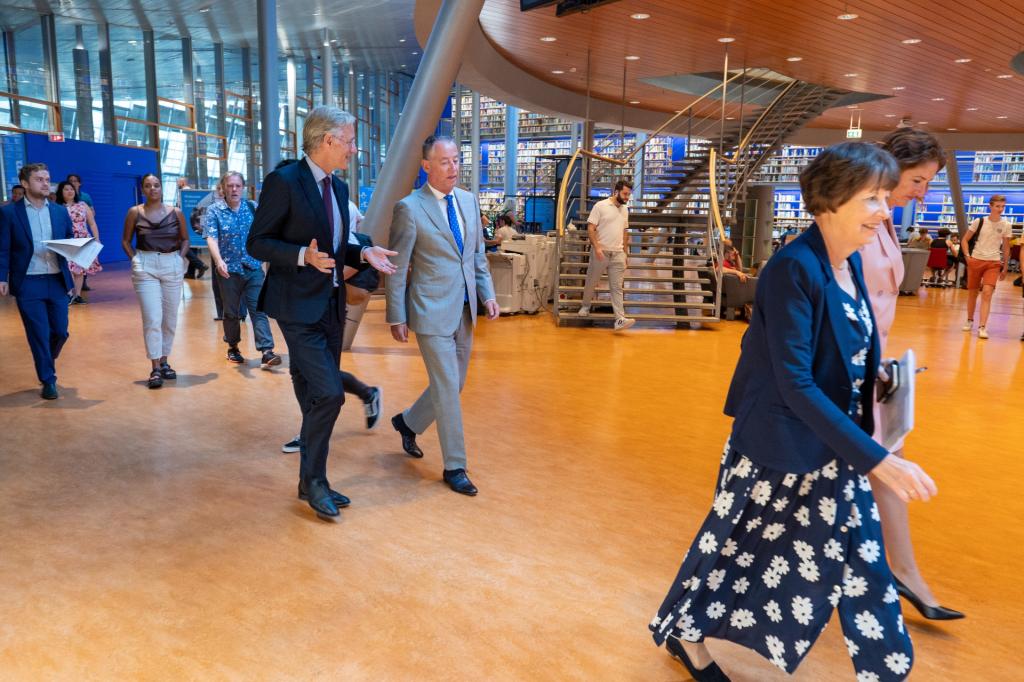Outgoing Education Minister Dijkgraaf had himself updated on experiences with open science at the TU Delft Library on 7 September. The choice of Delft was no coincidence.
After a cancelled visit in March, outgoing Education Minister Dijkgraaf visited the TU Delft Library on 7 September. (Photo: Sicco van Grieken)
Open science is the movement towards more open and collaborative research practices in which academic outputs are shared and made available for reuse. In all its variations, that has a long history in Delft. Researchers shared publications, data sets, codes, algorithms, and models with the outside world. No wonder, then, that Outgoing Education Minister Dijkgraaf came to TU Delft of all places on 7 September to hear about the experiences.
The meeting was closed, but ‘It was a fun, rather relaxed meeting,’ Anneke Zuiderwijk wrote afterwards. Zuiderwijk is an associate professor at the Faculty of Technology, Policy & Management (TPM) and one of the researchers present. ‘The minister was genuinely interested in the topic. You could tell he is a scientist because he asked very relevant questions.’
‘Openness is usually quite low on the priority list’
She herself brought up the fact that despite the substantial investment (20 million per year until 2023), very little is known about the effects and impact of open science. She also noted that it is not a top priority for most of her colleagues. ‘Researchers simply have too much on their minds and too little time to engage much with opening their data. Support helps, but openness of research data is usually quite low on the priority list. And that is understandable.’
Technical means of sharing knowledge also received attention. Michel Beerens, Director of TU Delft’s New Media Centre, showed how a hologram professor reaches more students, and how virtual reality glasses can make rare book collections accessible.
Afterwards, Minister Dijkgraaf wrote on X (in Dutch) that it was ‘Inspiring to engage in open discussion with these front runners. These TU Delft researchers showed me how they put open science into practice and what tools they use to do so. We also talked about the opportunities and challenges of open science.’
- Read more on Open Science on the TU Delft website.
Update 13-09-23: the investment amount has been changed in line with the information on the government website
Do you have a question or comment about this article?
j.w.wassink@tudelft.nl


Comments are closed.